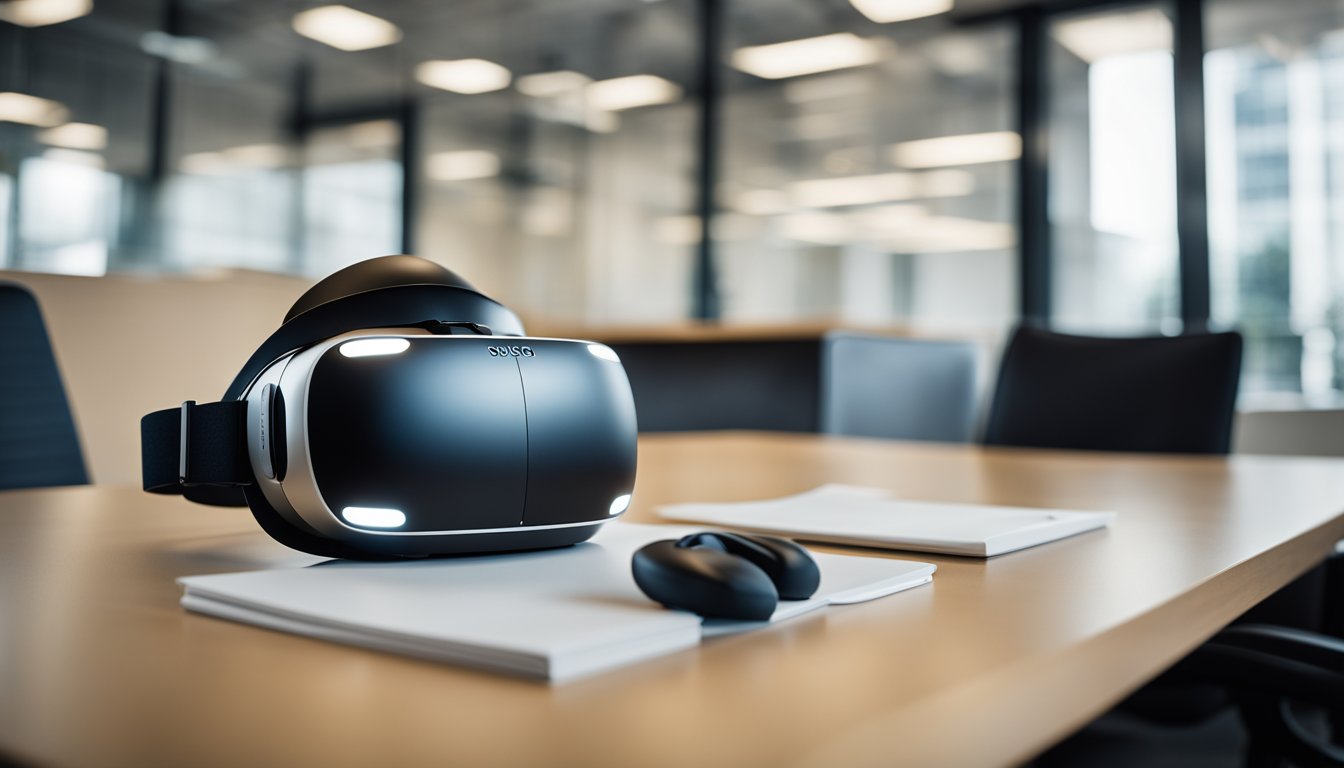
Use Virtual Reality to Enhance Your Business A Comprehensive Guide
As a business owner, you want to stay ahead of the curve and keep up with the latest trends in technology. One of the most exciting and innovative technologies on the market today is virtual reality (VR). VR has the potential to transform the way bus
As a business owner, you want to stay ahead of the curve and keep up with the latest trends in technology. One of the most exciting and innovative technologies on the market today is virtual reality (VR). VR has the potential to transform the way businesses operate, from improving employee training to enhancing customer experiences.

Understanding Virtual Reality and Its Impact on Business Virtual reality is a computer-generated simulation of a three-dimensional environment that can be interacted with in a seemingly real or physical way. The impact of VR on business is enormous, as it can be used in a variety of ways to enhance productivity, efficiency, and customer satisfaction. For example, VR can be used to create immersive training experiences for employees, allowing them to learn new skills in a safe and controlled environment. Additionally, VR can be used to create interactive product demonstrations, allowing customers to experience products in a more engaging and memorable way.
Incorporating VR into Different Business Sectors The applications of VR are endless, and it can be used in a variety of industries, including healthcare, real estate, and entertainment. In healthcare, VR can be used to simulate surgical procedures, allowing doctors to practice and perfect their skills before operating on real patients. In real estate, VR can be used to create virtual tours of properties, allowing potential buyers to view properties from the comfort of their own homes. In entertainment, VR can be used to create immersive gaming experiences, allowing players to feel like they are part of the game world.
Key Takeaways
- Virtual reality has the potential to transform the way businesses operate, from improving employee training to enhancing customer experiences.
- VR is a computer-generated simulation of a three-dimensional environment that can be interacted with in a seemingly real or physical way.
- VR can be used in a variety of industries, including healthcare, real estate, and entertainment, to enhance productivity, efficiency, and customer satisfaction.
Understanding Virtual Reality and Its Impact on Business
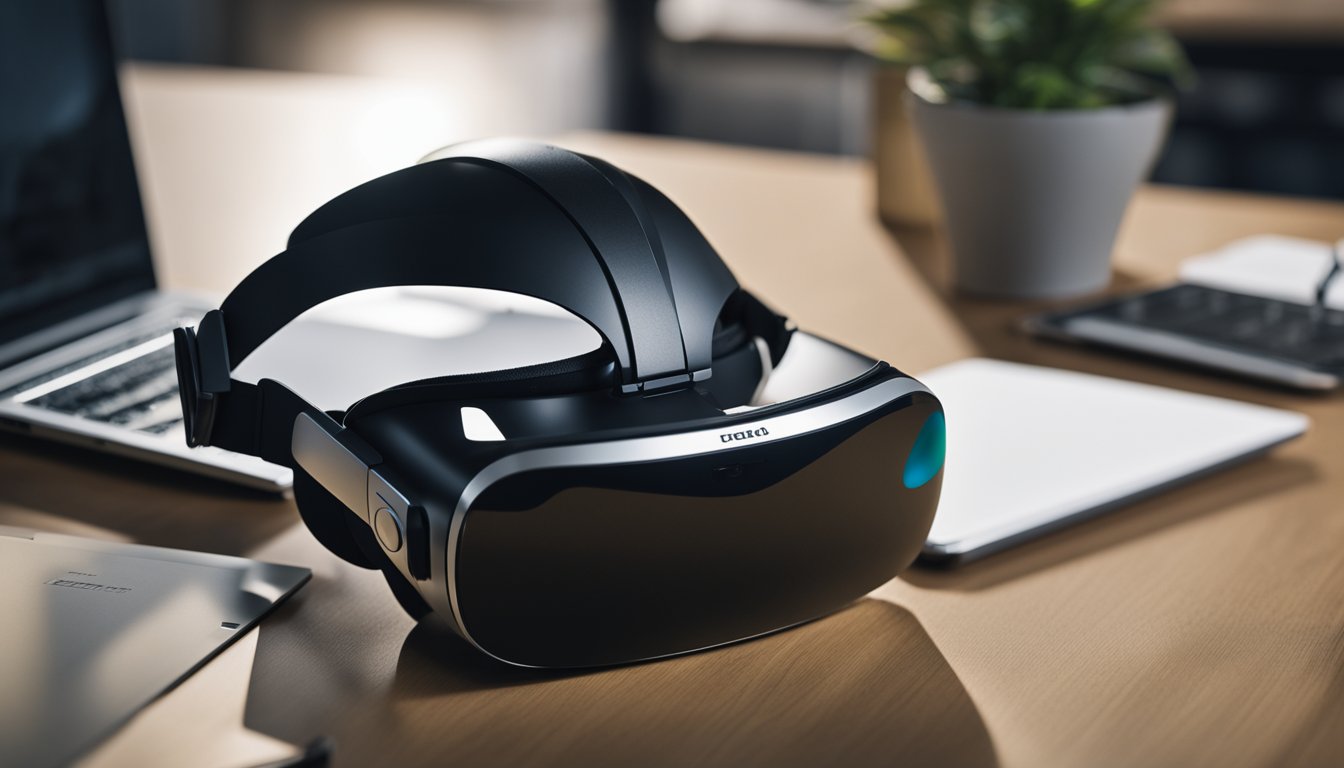
As a business owner, I am always looking for innovative ways to improve my operations and stay ahead of the competition. One technology that has caught my attention is virtual reality (VR). VR is an immersive technology that allows users to experience a computer-generated environment as if they were actually there. It is a powerful tool that has the potential to revolutionize the way businesses operate.
VR technology has come a long way in recent years and is now more accessible than ever before. With the availability of affordable VR headsets, businesses of all sizes can now take advantage of this technology. VR has a wide range of applications across different industries, including retail, personal and consumer services, manufacturing, construction, transportation, government, and more.
One of the most significant advantages of VR is that it can provide a more immersive experience than traditional media. For example, a virtual store can provide a more engaging experience for customers than a traditional website or physical store. VR can also be used to train employees in a more realistic and interactive environment, improving their skills and reducing errors.
Investing in VR technology can also provide a competitive advantage for businesses. By creating a virtual store or showroom, businesses can quickly and confidentially test new products and designs without the costs and risks associated with physical prototypes. VR can also be used to create virtual tours of properties, allowing potential customers to experience a property before it is built.
Another emerging technology that is closely related to VR is augmented reality (AR). AR is a technology that overlays digital information onto the real world, enhancing the user's experience. AR has a wide range of applications, including gaming, advertising, and education. In the business world, AR can be used to provide customers with additional information about products or services, improving their understanding and engagement.
Finally, the concept of the metaverse is becoming increasingly popular. The metaverse is a virtual universe where users can interact with each other and with computer-generated environments. The metaverse has the potential to revolutionize the way we work, play, and interact with each other. Businesses that invest in the metaverse now can position themselves as leaders in this emerging field.
Overall, VR and related technologies have the potential to transform the way businesses operate. By providing a more immersive experience, improving training and design processes, and providing a competitive advantage, VR can help businesses stay ahead of the curve. As a business owner, I am excited about the possibilities of VR and am looking forward to seeing how this technology develops in the years to come.
Incorporating VR into Different Business Sectors
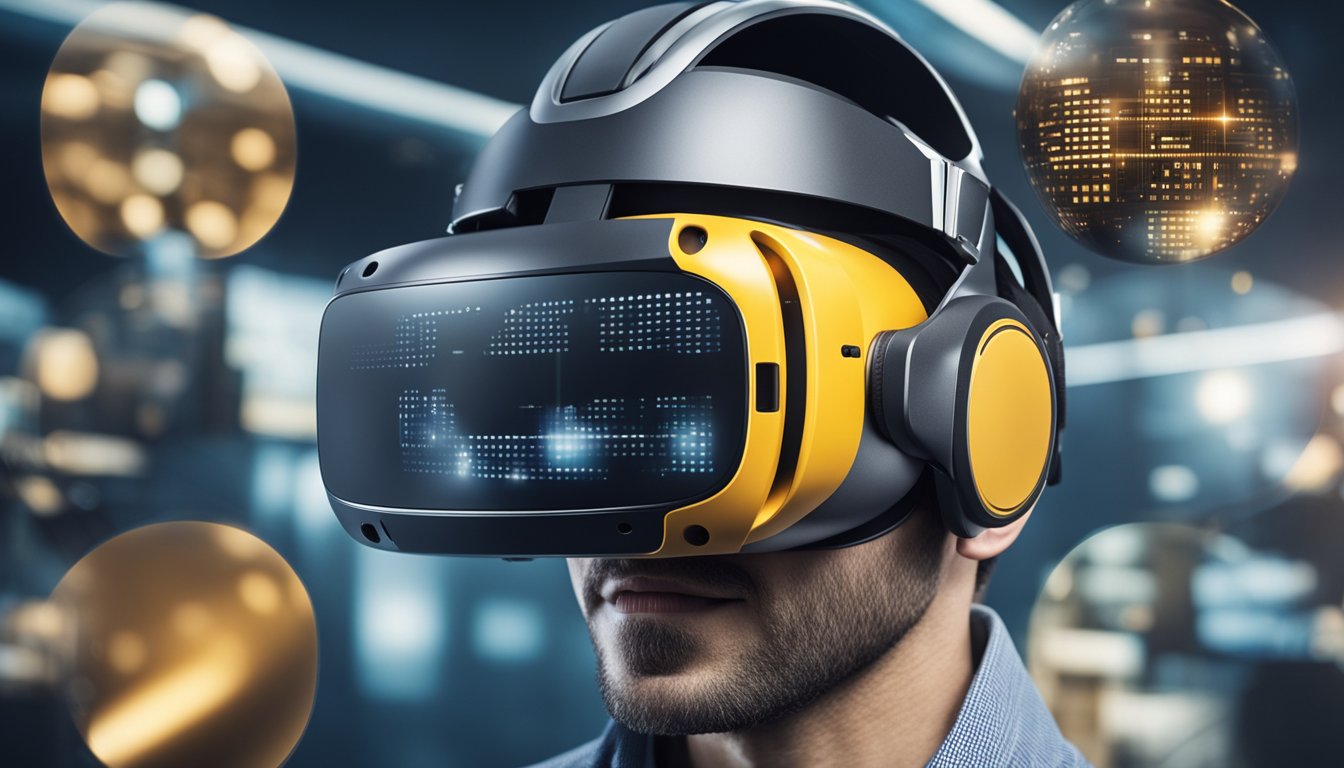
As virtual reality (VR) technology continues to evolve, it has become increasingly clear that it has the potential to revolutionize a wide range of business sectors. Here are some ways in which different industries can incorporate VR into their operations:
Retail
VR technology can be used to create virtual showrooms and interactive experiences for customers. This can help retailers showcase their products in a more engaging and memorable way, leading to increased customer engagement and sales.
Manufacturing
VR can be used for prototyping and design in manufacturing and production-driven businesses. This allows every characteristic of a part, process, or mechanism to be simulated and tested. Performance or reliability can be tested and examined under any condition, far more cost-effectively, quickly, and safely.
Real Estate
VR technology can be used for virtual home staging, architectural visualization, and virtual tours. This makes it easier for real estate agents to showcase properties to potential buyers, even if they are not physically present.
Healthcare
VR technology can be used for training and education in the healthcare sector. This allows medical professionals to practice procedures and treatments in a safe and controlled environment before applying them to real patients.
Hospitality
VR technology can be used to create virtual tours of hotels and resorts, allowing potential guests to experience the property before making a booking. VR can also be used for training employees in the hospitality industry.
Marketing and Sales
VR technology can be used to create immersive and engaging marketing campaigns, allowing businesses to showcase their products and services in a more memorable way. VR can also be used for remote client consultations, allowing sales teams to connect with potential customers from anywhere in the world.
Human Resources
VR technology can be used for onboarding and training new employees, as well as for employee retention. This can help businesses save time and money on training while ensuring that employees are well-prepared for their roles.
Data Visualization
VR technology can be used for data visualization, allowing businesses to create immersive and interactive visualizations of complex data sets. This can help businesses gain insights into their operations and make more informed decisions.
Overall, incorporating VR technology into different business sectors can lead to increased efficiency, improved customer experiences, and a competitive advantage in the market. As the technology continues to evolve, it is likely that we will see even more innovative uses for VR in the future.
VR and the Future of Business in a Post-COVID World
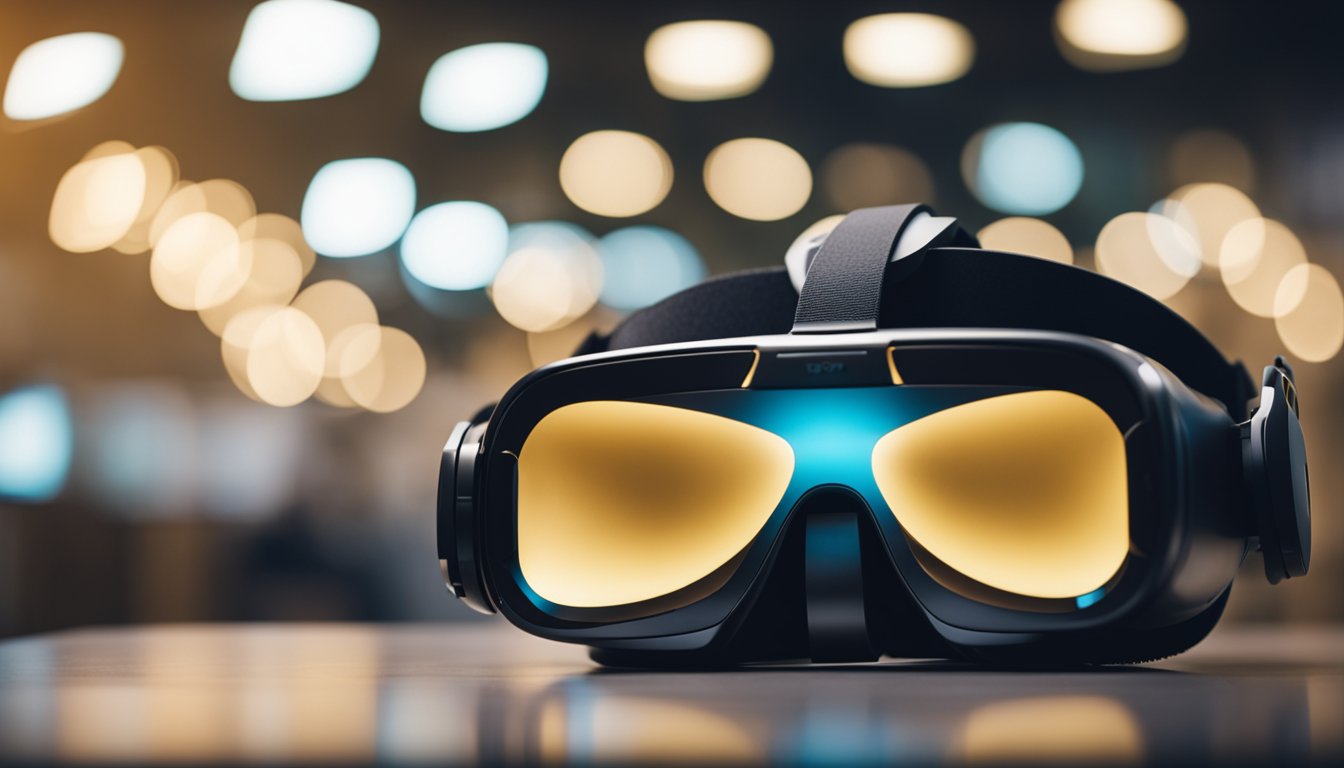
As the COVID-19 pandemic continues to affect businesses worldwide, it has become increasingly clear that in-person interaction is no longer a viable option for many companies. With social distancing measures in place, it has become critical for businesses to find new and innovative ways to engage with their customers and employees. This is where virtual reality (VR) comes in.
The COVID-19 pandemic has accelerated the adoption of VR and other immersive experiences as businesses look for ways to connect with their customers and employees remotely. VR technology allows businesses to create immersive experiences that can be accessed from anywhere, making it an ideal solution for businesses that need to maintain social distancing measures.
In the post-COVID world, VR technology will play an even more significant role in business operations. With many companies moving towards remote work, VR technology can help bridge the gap between employees and employers by providing a more immersive and engaging work environment. This can lead to increased productivity and a more satisfied workforce.
Moreover, VR technology can be used to create innovative marketing campaigns that can help businesses stand out in a crowded marketplace. By creating immersive experiences that allow customers to interact with products and services in a virtual environment, businesses can create a more engaging and memorable experience for their customers.
In conclusion, VR technology has the potential to revolutionize the way businesses operate in a post-COVID world. By providing immersive and engaging experiences, VR technology can help businesses connect with their customers and employees in new and innovative ways. As the technology continues to evolve, we can expect to see even more exciting applications of VR in the business world.
Frequently Asked Questions
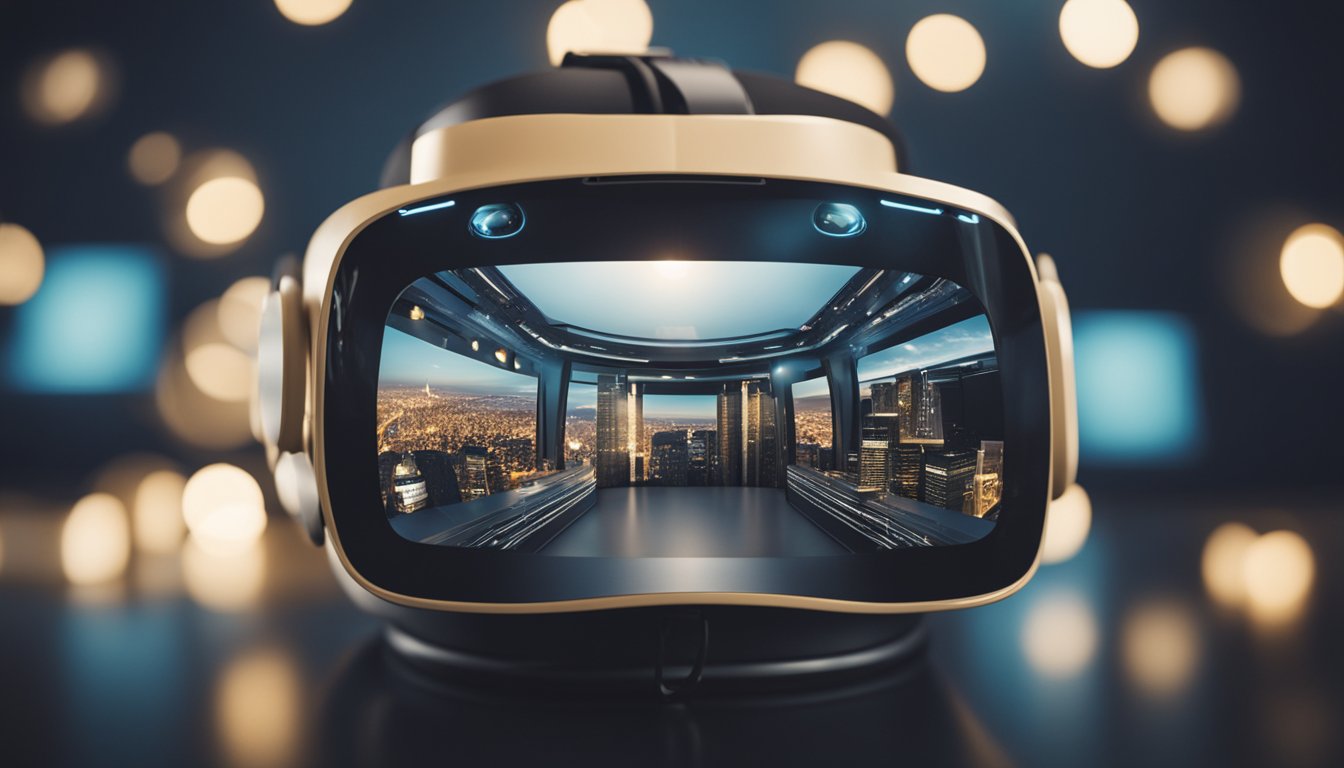
What are some industries that have successfully implemented virtual reality in their business?
Virtual reality has been successfully implemented in various industries, including retail, personal and consumer services, manufacturing, construction, transportation, government, and education. For example, retailers have used virtual reality to create immersive shopping experiences for customers, while manufacturers have used it for employee training and safety simulations.
What are some potential benefits of using virtual reality in a business setting?
Implementing virtual reality in a business setting can have several benefits, such as improving employee training and safety, enhancing customer experiences, increasing productivity, reducing costs, and providing a competitive edge. Additionally, virtual reality can help businesses reach a wider audience by creating immersive experiences that can be accessed from anywhere.
What are some challenges businesses may face when implementing virtual reality?
Some challenges businesses may face when implementing virtual reality include the cost of equipment and software, the need for specialized skills and training, the potential for technical issues and glitches, and the need to create compelling and engaging content. Additionally, businesses may face resistance from employees or customers who are unfamiliar with virtual reality technology.
Are there any successful case studies of businesses using virtual reality?
Yes, there are several successful case studies of businesses using virtual reality. For example, Walmart has used virtual reality to train employees for Black Friday events, resulting in increased productivity and reduced training time. Audi has used virtual reality to create immersive car showrooms, resulting in increased customer engagement and sales. And Lowe's has used virtual reality to create DIY tutorials, resulting in increased customer satisfaction and loyalty.
How can virtual reality be used to enhance customer experiences in a business?
Virtual reality can be used to enhance customer experiences in several ways, such as creating immersive product demonstrations, providing virtual tours of facilities or locations, and creating interactive and engaging games or experiences. Additionally, virtual reality can help businesses reach a wider audience by creating experiences that can be accessed from anywhere.
What are some cost-effective ways for small businesses to incorporate virtual reality technology?
Small businesses can incorporate virtual reality technology in several cost-effective ways, such as using low-cost virtual reality headsets and software, creating simple and engaging content in-house, and partnering with virtual reality companies or freelancers to create more complex experiences. Additionally, small businesses can use virtual reality technology to enhance employee training and safety, resulting in increased productivity and reduced costs.




